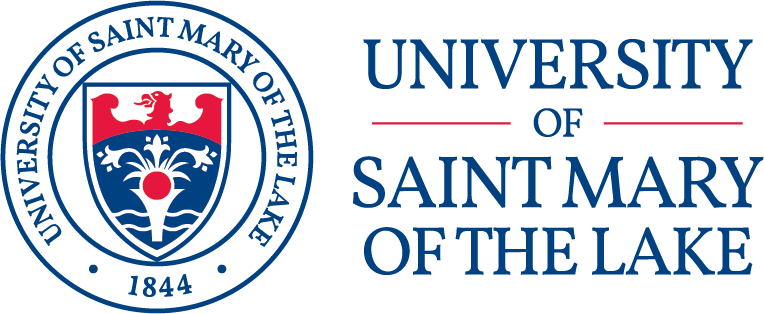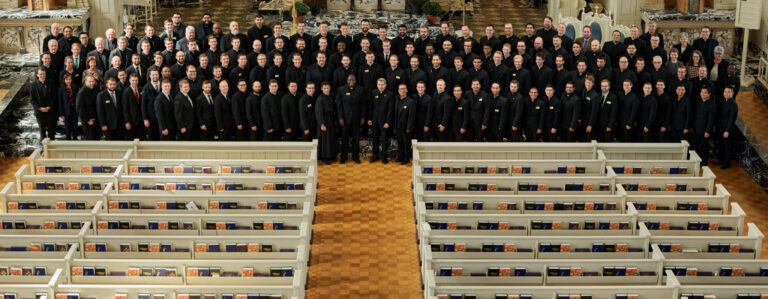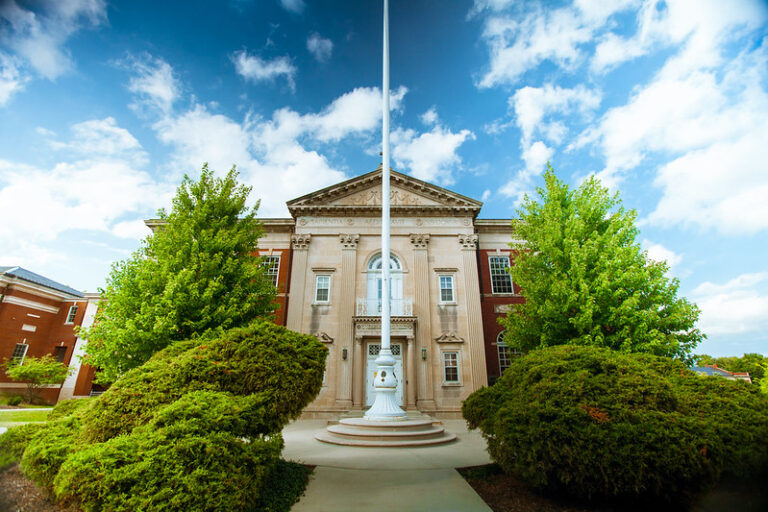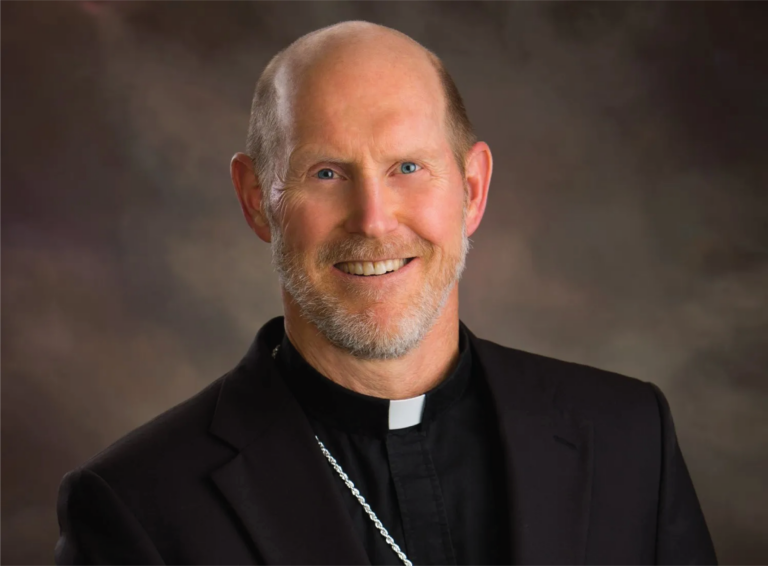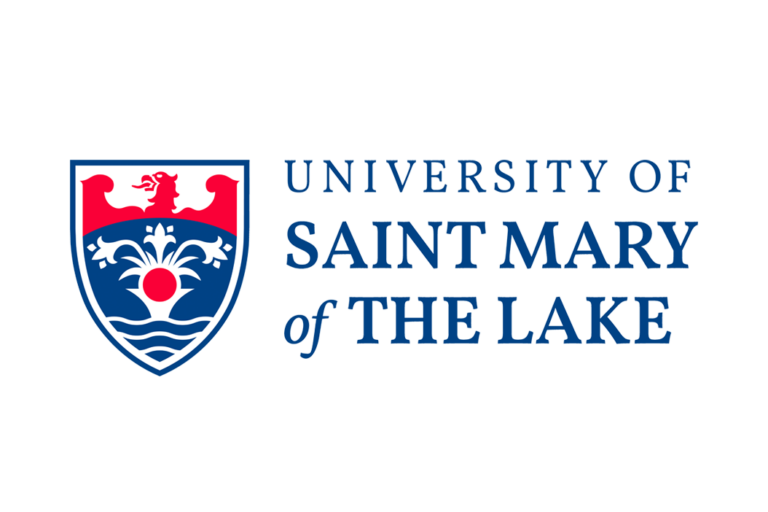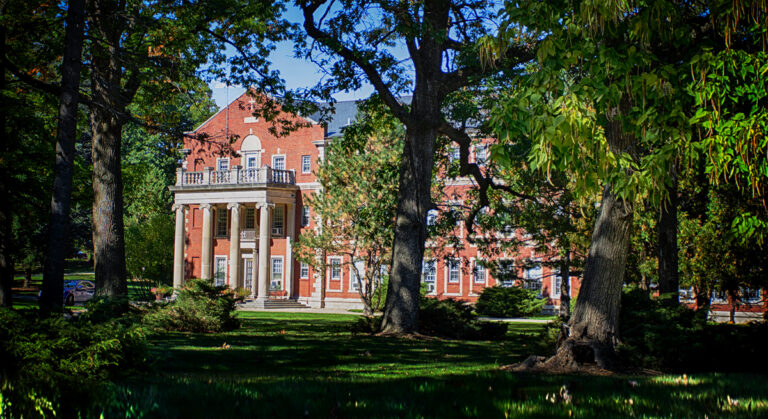SPLE Launches a New Master of Theological Studies Program.
Who’s it for?
The Master of Theological Studies is a broadly based graduate degree in theology that provides a solid foundation in the field. Designed for working adults who don’t have a deep academic background in theology, the degree is perfect for those seeking to grow in their faith, serve the local church, or launch a career in ministry or teaching.
Key Features of the Degree Program:
- Available fully online or fully onsite
- 36 credit hours – can be completed in as little as two years
- Flexible classroom approach for working adults
- Wide network of students and alumni
What you’ll study?
Foundations of Catholic Doctrine
This survey course introduces students to fundamental Catholic theology. Using the Nicene Creed as the overall structure of the course, the students will study the Nature of God, the Doctrine of the Trinity, and those attributes we associate with our Triune God. In the second half of the course, the students will learn about the Hierarchy of Truths, the relationship between Scripture, the Tradition, and the Magisterium, and lastly, the essential elements of Eschatology and Mariology.
Christian Anthropology
This course will treat theological notions about the origin and destiny of the universe and humanity. Encompassing the major themes of creation, sin, grace, and eschatology, we will examine topics such as the image of God, free will and Original Sin, justification, death, judgment, heaven, hell, and purgatory.
Christology
This course is a general introduction to the theology of the person and work of Jesus Christ. The first part of the course surveys the development of the dogma of the person of Christ from Jesus’ teaching about himself to the Third Council of Constantinople. The second part of the course examines the contemporary challenge of historical-critical investigation of Scripture to the identity and saving mission of Christ and the Scriptural foundations for the doctrine of Christ as universal savior. The third part of the course surveys the development of understanding of the saving work of Christ, emphasizing the Roman Catholic understanding of the dynamics of salvation in comparison with Eastern, Protestant and contemporary pluralist soteriologies.
Church History
This course is intended to provide students with a broad overview of some of the major events and persons in the history of the Church. Emphasis will be placed on the history of the Roman Church. Important themes include: the papacy, the development of doctrine, church/state relations, and the relationship between Christianity and culture.
Moral Theology
Part one of this course sets forth fundamental moral theology. Scripture, Apostolic Tradition, various ecclesial traditions, and natural reason are studied in light of moral decision-making. Christ is the paradigm of human action. The believer is challenged to live the faith. Virtue as a path to holiness is discussed along with fundamental concepts including natural law, sin, and action theory (the role of intention and the moral object in voluntary human acts). Part two applies foundational moral principles to practical questions concerning sexuality, marriage, and family.
New Testament
After some introductory classes on the origins of the New Testament, on methods of reading it, and of its roots in the Jewish Scriptures, the course will spend most of the semester on the Synoptic Gospels and Acts of the Apostles. Students will also do an assignment involving the study of the New Testament epistle.
Old Testament
This course will be an introduction to the contents of the Old Testament. The history of ancient Israel will be used as a way of understanding the content and the development of the biblical books. Methods of exegesis encouraged by official Church teaching will be used and introduced.
Sacramental Theology
This course explores the historical and ecclesiological foundations of Christian sacramental theology by considering crucial theological issues, key theologians, and major magisterial initiatives in different historical periods (patristic, medieval, Tridentine, and modern). The influence of modern biblical studies is evaluated. Students not only receive a survey of the sacramental practice of the Church in different historical periods but are also equipped to understand the theological contributions which each period made to the Catholic understanding of the sacramental doctrine and practice.
Ecclesiology
This course will analyze the origin, nature, and mission of the mystery of the Church. There will be a special emphasis on the four marks of the Church: one, holy, Catholic, and apostolic. The major ecclesial themes presented in the conciliar documents of the Second Vatican Council Lumen Gentium and Gaudium et Spes will be highlighted and analyzed throughout the course. In a particular way, the Universal call to Holiness will be presented as benchmark for living the Christian life. Finally, Chapter VIII of Lumen Gentium will be offered as a guide to the Church’s rich Marian doctrine and devotion. The course will also provide a survey of the role of the Blessed Virgin Mary in the history of salvation and in the life of Christ and the Church.
The degree also offers a number of elective courses for students to personalize their course of study or develop an area of concentration. The course of study can be completed in as little as two years by taking advantage of summer intensive courses on campus and other exciting instructional options.
How is it delivered?
The Master of Theological Studies Degree (MTS) can be completed completely online or by taking courses at our beautiful campus in Lake County, IL. While USML offers many specialized degree programs, this course of study is particularly suited for the student who is seeking to grow in their appreciation for the Catholic Church’s rich theological and spiritual tradition or feels called to explore their faith more deeply without being certain where it might lead.
No previous coursework in theology of philosophy is required – only an undergraduate degree from an accredited university and a passion to learn from outstanding and engaged faculty.
Applications are being accepted for the fall semester. For more information, contact Dr. Theodore James Whapham, Dean of the School of Parish Leadership and Evangelization, at admissions@usml.edu .
The University of Saint Mary of the Lake is the home to Roman Catholic theological education located within the Archdiocese of Chicago. The University maintains schools and programs that prepare students for ministry: Mundelein Seminary, The Pontifical Faculty of Theology, and now the new School of Parish Leadership and Evangelization. To learn more about USML, visit www.usml.edu.
